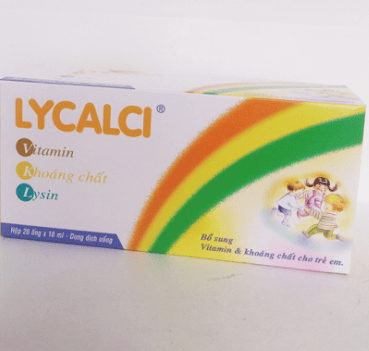This is an automatically translated article.
Article written by Dr. Phan Nguyen Thanh Binh - Department of Pediatrics - Neonatology, Vinmec Central Park International General HospitalChildren eat and drink, not knowing how to chew food is a common concern of many parents. The habit of sucking on food not only makes eating atmosphere stressful and tiring, but in the long run, children are prone to tooth decay, nutritional deficiencies, and malnutrition.
1. Causes of children sucking on food
Children do not focus on meals: Children eat while playing, or watch TV, ipads, phones, etc., so they forget to chew and swallow food, gradually forming habits that are difficult to quit, long-term not only affects the digestive system of children, children do not recognize the sense of appetite, reduce interest and interest in eating, even though the meal is delicious and attractive.
Do not practice giving your baby solid food gradually from the beginning of solid foods for fear of vomiting and difficulty in digestion. The prolonged pureeing of food not only causes children to lose their chewing reflex but also reduces jaw muscle function, anorexia, and slow eating because pureed foods are boring, monotonous, and lose the unique and delicious taste of each type. foods.
Food that is not suitable for chewing or taste: Hard, bland, too cold, fishy, forever eating one taste, one type of food,...
Illness makes the child tired or Difficulty chewing, swallowing: Like teething, swollen gums, sore throats, canker sores, hand, foot and mouth disease, viral infections, ...
Children with anorexia, find ways to prolong eating time so that they don't have to eat. a lot, or children like to suck on food because it takes a long time to feel sweet because the food-digesting enzyme in the salivary glands has converted food into sugar,...

Mẹ không tập cho trẻ ăn thức ăn thô dần là một nguyên nhân trẻ ăn ngậm
2. Overcome your child's sucking on food
Stay away from technology devices
The habit of feeding your baby while letting him watch TV or use technological gadgets such as ipads and phones not only affects your child's digestive system, but they are creating habits themselves. bad in the baby's daily meal. Watching cartoons or advertisements will distract your baby, distract him, make him busy playing, forget to eat or even lose his appetite, no matter how appealing the meal is. Or more dangerous, it affects the immature stomach of the child.
Food suitable for chewing strength and taste
Each age is different, the baby will be suitable for a different form of food. Do not let your baby eat beyond the baby's chewing ability, do not let the food be too hard, too chewy, ... as well as do not maintain the pureed food for too long. Practice feeding your baby coarse food gradually from 7-9 months of age, when switching from sweet powder to salty powder, food should be minced and chopped so that children can practice chewing and swallowing food. You can change foods to your baby's taste gradually, alternating between new foods and old foods that children love.
"Decorate" food
The presentation of food into lovely, eye-catching, brightly colored shapes creates the baby's curiosity and interest in the food, making them want to eat more. Monotonous and boring food processing and presentation is also one of the reasons why children are not interested in eating and prolonging meals.
Change the child's menu every day
Even nutritious and favorite food, if eaten continuously for a long time, it is easy to make children bored and bored. It is recommended to regularly change dishes and change the way of processing, menu ingredients are diverse and rich in nutrients to help children's food taste more delicious and attractive.
Do not prolong the eating time
Mother should only feed the baby for 30 minutes to help the baby have a happy and positive spirit with the meal without feeling disgusted with eating. At first, the amount of food may be less than expected, but most babies realize that eating less will be hungry and gradually increase the amount of food over time and overcome the problem of sucking food.
Let children eat with the family
Young children often have the habit of observing, learning and imitating the actions of adults or like to emulate other children. Feeding children with parents and other family members in a warm, happy atmosphere can help children eat better, focus on meals and chew and swallow food better.
To avoid malnourishment, poor appetite in children, parents should supplement children with supportive products containing lysine, essential micro-minerals and vitamins such as zinc, chromium, selenium, B vitamins to help meet the needs of children. meet nutritional needs. These essential vitamins also support digestion, enhance nutrient absorption, help improve anorexia, and help children eat well. Parents can simultaneously apply dietary supplements and functional foods derived from nature for easy absorption. Most importantly, improvement in your baby's condition often takes a long time. The combination of many types of functional foods at the same time or continuously changing many types in a short time can cause the baby's digestive system not to adapt and completely not good. Therefore, parents must be really persistent with their children and regularly visit the website vimec.com to update useful baby care information.














